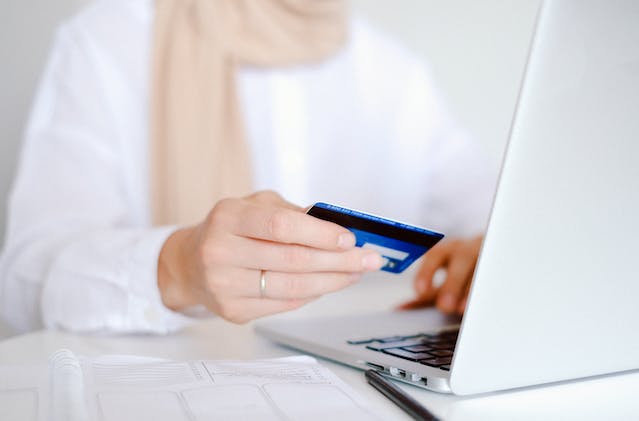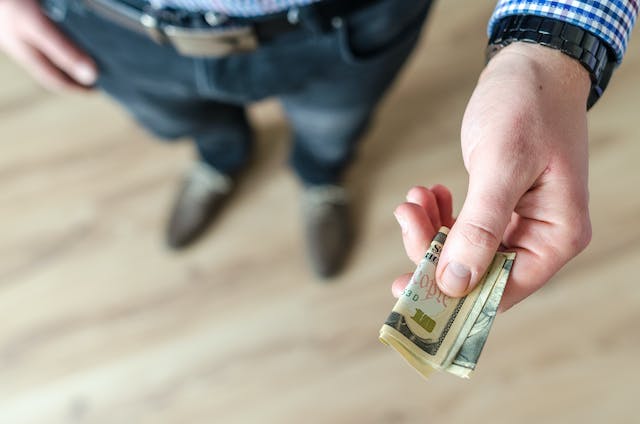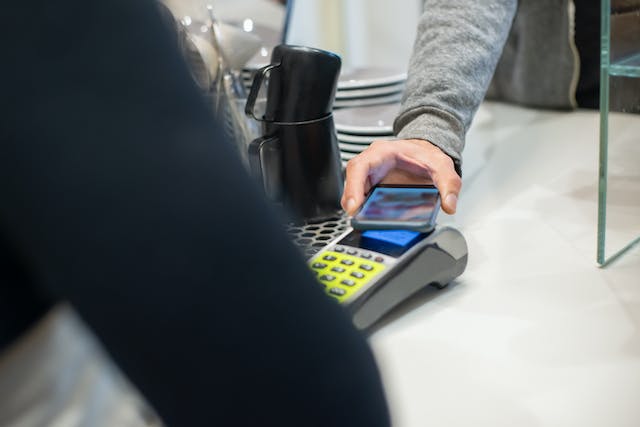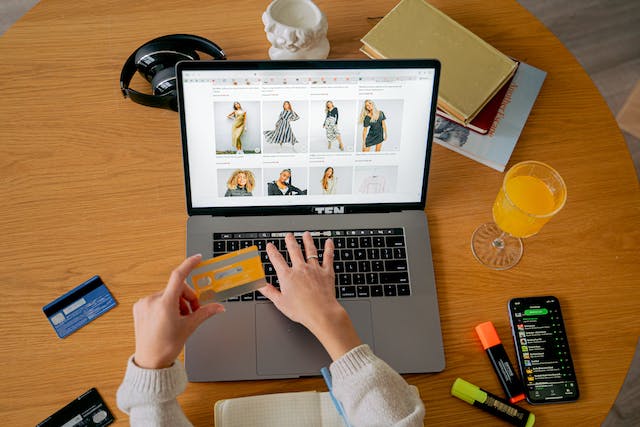In a world where financial decisions are becoming increasingly complex, every penny saved counts. Payment choices matter for those watching their budget and stretching their dollar. Most people pay without thinking about which way is best. But choosing between cash, debit, credit, mobile app, or online banking can help or hurt your bottom line. Here we’ll look at how picking the right way to pay can save cash, possibly earn rewards, and help you make smarter choices about money.
Credit Cards: Maximizing Rewards and Protection
Credit cards are a powerful device for maximizing rewards and providing protection for your purchases. And, they’re one of the most widely-used payment methods. By the end of 2023’s first quarter, there were more than 1 billion each of Mastercard and Visa credit cards in use, as well as 133 million American Express cards.
Consider using a credit card for larger purchases, such as electronics or appliances, to take advantage of extended warranties and purchase protection. For example, if you buy a new laptop with a credit card, you may benefit from an extended warranty that covers any malfunctions beyond the manufacturer’s standard warranty and you’ll likely score cashback rewards from your credit card company as well.
Smart shoppers can use their credit cards as a tool that can save them money and earn rewards when used correctly. One great example is credit cards that offer travel miles (like the British Airways American Express card or the Virgin Atlantic card), which can add up over time and can offer substantial savings. A survey by Citi and The Harris Poll found that a massive 28% of travelers plan on using credit card points or airline miles to book their next trip.
Budget-minded shoppers use their credit cards for everyday expenses like the food they eat and gas for their car. Then, they quickly pay off the balance to avoid fees. This strategy allows shoppers to accumulate rewards without incurring additional costs. For example, say a person spends around $1,000 each month on eating out with friends, buying food for home, and taking short trips. If they do this through the year with a card that offers 2% cashback, they stand to earn about $240 in cashback during the year ($12,000 * 2%), or $20 a month. This is a big way to earn a portion of what you spend back. The Corporate Finance Institute highlights the wide array of credit cards accessible to consumers in the present day, each presenting diverse cashback opportunities that span from 0.25% to an impressive 5%.
Additionally, consider using your credit card for travel, entertainment, and even online gaming and betting. Credit cards offer an array of enticing perks for avid travelers, including travel rewards, airline miles, and complimentary travel insurance. By strategically utilizing these credit card benefits, jet-setters can unlock exclusive discounts and upgrades, transforming their travel experiences into memorable adventures. Similarly, savvy online gamblers have learned to embrace the versatility that credit cards offer for online betting, which opens up a world of convenience and exciting possibilities. With Visa’s widespread acceptance on online betting platforms, it’s a popular choice. Users can effortlessly fund their accounts and indulge in their favorite activities with ease. Utilizing Visa as deposit and payment options adds a layer of convenience and security to online betting, offering users a seamless and trusted method to fund their accounts for an enhanced and worry-free gaming experience. Remember to approach this experience with positivity and responsibility, ensuring timely repayments to fully enjoy the benefits without any financial concerns.
Debit Cards: Control and Avoidance of Debt
When it comes to controlling spending and avoiding debt, debit cards are an excellent choice. Smart shoppers can use debit cards for day-to-day expenses, such as eating out, ordering takeout, groceries, and household necessities are great options to put on a debit card. Since the funds are directly deducted from your bank account, you’ll have a real-time view of your available balance, promoting responsible spending.
Using a debit card can also bring possible rewards. Some banks and programs offer cashback and loyalty points. These rewards, often tied to everyday purchases, allow consumers to earn tangible benefits while maintaining a direct link to their bank accounts, promoting responsible spending habits. According to Forbes, cashback on debit card transactions is typically around 1-2% and is credited to your account after eligible transactions occur. Forbes goes further to explain that cashback on debit cards is credited directly to the user’s account, increasing the overall balance available, whereas cashback on credit cards typically is used to decrease or pay off the credit card balance.
Debit cards are also great for online shopping. They offer the same convenience as credit cards, but without the risk of having debt stack up, since debit cards simply use the cash in the account that they are linked to. This is important for those on a strict budget or trying to reduce and reign in their spending habits. Additionally, using a debit card is advantageous in situations where cash may not be practical, offering a secure and electronic alternative for transactions such as online shopping or larger purchases where carrying physical currency might be inconvenient. In the UK, debit cards were used by 66% of those who purchased goods online in 2023, which was higher than the global average for this payment method of 49% in 2022.
Cash: A Tangible Budgeting Tool
In 2009, more than half of all transactions were paid for in cash. By 2019, only 1 payment in every 4 was covered with cash. Despite this, cash remains a valuable budgeting tool, especially for small, everyday expenses. A top tip from savvy savers is to withdraw a set amount of cash each week for discretionary spending, such as coffee or lunch. By adopting this practical approach, individuals can gain a heightened understanding of their expenditure patterns. This method serves as a deterrent against reckless spending habits. Once your cash in hand is depleted, there is a necessity to patiently await the next withdrawal, which helps curb impulsive purchases.
Cash proves advantageous for transactions in locations that may not accept card payments or involve extra charges, like local markets or small enterprises. Opting for cash in such situations can reduce expenses and usually guarantees a seamless, convenient experience, making it a practical choice for many people. For example, when attending a local farmer’s market, paying with cash might allow you to negotiate better deals and avoid any additional fees associated with card transactions. For some shoppers who like to support small local businesses on a daily or weekly basis, having cash on hand is key to being able to buy fruits and veggies from local farms and markets all while avoiding debit and credit card fees and any associated hassles.
Besides being a valuable budgeting tool and useful for supporting small local businesses, cash is also key when protecting your identity and for security. Cash transactions provide a level of privacy that electronic transactions may not. If you prefer to keep your purchases more discreet or are concerned about online privacy, using cash can be a very suitable option, yet it’s becoming less and less popular. In terms of online payments, only 2% of purchases online in 2022 were made using cash on delivery as a payment type.
Mobile Payment Apps: Streamlining Transactions
Mobile payment apps offer a seamless and efficient way to make transactions, especially in situations where speed is essential. Use mobile payment apps for quick and contactless payments at places like coffee shops, fast-food restaurants, or public transportation. In doing so, you certainly won’t be alone: last year, more than half of the world’s eCommerce payments were made using mobile wallets. On top of this, over 2.8 billion such accounts exist worldwide, with almost half of these being found in the Asia-Pacific region.
Many mobile payment apps also provide exclusive discounts and rewards for using their platform. The accumulated cashback or discounts can add up over time, contributing to significant savings. If you’re a coffee lover, consider using your mobile payment app of choice to purchase your morning brew. The loyalty points and discounts offered in app can add up, equaling free coffees or savings after a while.
To join the mobile payment app movement, budget-minded shoppers can consider using PayPal, Cash App, Venmo, or any of the other many options available. There might even be an option included on your phone by default, like Apple Pay for iPhone users, which had 507 million users worldwide in 2020. To purchase snacks on the go, consumers can also use their favorite restaurant’s app, many of which now offer online ordering and payment options. Industry leader Starbucks started developing its app as early as 2009 so that customers could order their favorite coffee or treat on the move.
Another big bonus about using mobile payment apps is their ability to budget with friends and family. Mobile payment apps simplify the process of paying friends or splitting bills, providing a seamless and convenient way to manage shared expenses. Whether you’re splitting a dinner tab or reimbursing a friend for concert tickets, these apps enable quick and hassle-free transactions. With features like instant notifications and detailed transaction histories, mobile payment apps streamline financial interactions among friends, fostering transparency and ease in managing shared costs.
Online Banking: Automate and Optimize
Online banking offers numerous benefits, providing users with unprecedented convenience by allowing them to manage their finances from the comfort of their homes. With features like automated bill payments, users can ensure timely payments, avoid late fees, and maintain a positive credit history. Furthermore, online banking enhances financial transparency, offering detailed transaction histories and real-time balance updates, empowering individuals to make informed and strategic decisions about their money. Online banking proves to be a versatile tool for simplifying the payment of various bills. Whether it’s utility bills, credit card payments, rent or mortgage, insurance premiums, internet and cable bills, subscription services, student loan payments, or mobile phone bills, online banking offers a streamlined approach.
Additionally, leverage online banking features for expense tracking and budgeting. Analyze your spending patterns and identify areas where you can cut costs. For instance, if you notice excessive spending on dining out, consider adjusting your budget and allocating those funds to savings or debt repayment.
Frequently Asked Questions
Learning about how your transactions affect your bank balance can be complex. In this section, we address common inquiries related to credit cards, mobile payment apps, debit cards, online banking, and effective strategies for saving money during various transactions. Let’s dive into the world of smart financial choices and discover how your payment methods can become powerful tools for savings.
How can I leverage credit card rewards to maximize savings?
To maximize credit card rewards, focus on cards that align with your spending habits. Opt for cards offering cashback, travel miles, or points that suit your lifestyle. Pay your balance in full each month to avoid interest charges, and be strategic about using rewards for high-value redemptions or statement credits.
What are the pros of using mobile payment apps for daily purchases?
Mobile payment apps offer the convenience of quick and contactless transactions. Many apps provide cashback, discounts, or loyalty points for regular use. Additionally, these apps streamline expense tracking and budgeting, allowing users to make informed financial decisions while enjoying the perks associated with their transactions.
In what situations should I opt for debit card transactions to save money?
Opt for debit card transactions when making everyday purchases, such as groceries or dining out. Because debit cards are directly linked to your bank account, you’ll see charges as they occur and it can help you budget accordingly. This minimizes the risk of accumulating debt and allows you to focus on responsible spending without worrying about interest charges.
How can I strategically use online banking to optimize my finances and save on fees?
Use online banking to automate recurring payments, ensuring bills are paid on time and avoiding late fees. Leverage budgeting tools to track expenses, identify areas for potential savings, and allocate funds strategically. Regularly monitor your accounts for any unauthorized transactions or fees, and take advantage of paperless statements to reduce unnecessary paperwork.
What are some effective ways to save money when making online purchases with various payment methods?
When making online purchases, look for discounts or cashback offers provided by specific payment methods. Utilize credit card rewards or promotions associated with online retailers. Consider using secure payment options like PayPal for added buyer protection. Additionally, compare prices across different platforms and take advantage of seasonal sales or promotional periods to maximize savings.
How can I stop overspending on daily essentials when using a credit card?
To prevent overspending with a credit card, set a realistic monthly budget and use the card for planned, essential expenses. Regularly monitor your credit card statements, leverage budgeting apps, and commit to paying the full balance each month to avoid accumulating debt and interest charges.
What security measures should I consider when using mobile payment apps?
When using mobile payment apps, prioritize security by enabling two-factor authentication, setting up a secure PIN or biometric authentication, and regularly updating the app. Avoid public Wi-Fi networks for sensitive transactions, monitor your account activity for any unauthorized transactions, and use apps from reputable providers to ensure a secure and protected digital payment experience.






